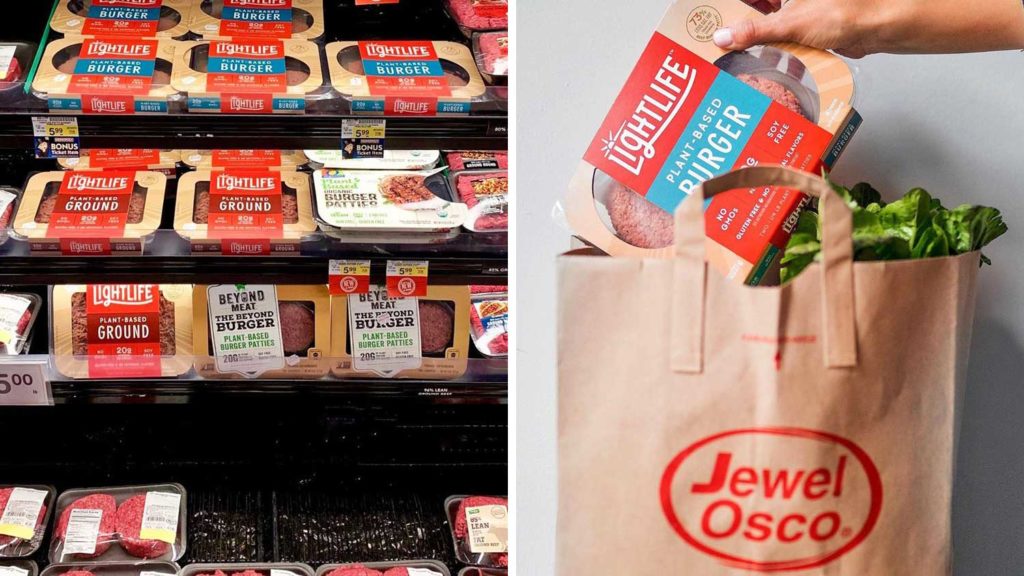“Bleeding” vegan burgers, realistic plant-based sausages, and chicken-free nuggets seem to be everywhere at the moment.
Meat-free products — from brands such as Lightlife, Beyond Meat, Impossible Foods, and Gardein — line supermarket shelves, appear on restaurant menus, and you can even find some of them at fast-food joints.
These products are entirely different from the veggie bean patties that used to be the standard vegan option. Made out of a variety of beans and legumes, vegan meat burgers look, cook, and taste just like beef, but they don’t need a cow.
So why are plant-based companies trying to emulate the very product they’re trying to rival?
Many consumers want more environmentally-friendly and healthier products, but they want them to remain familiar. They want burgers that taste like the ones they’ve grown up with — at cookouts, baseball games, football matches, and family gatherings. Most of these people are not vegan, nor are they trying to be.
Flexitarianism is on the rise; in the UK, 91 percent of the population identify as flexitarian. They are trying to reduce their meat intake, not completely eliminate. The story is the same in other countries. In the U.S., nearly 114 million Americans are trying to add more plant-based foods to their diet, not switch to veganism completely.
It’s these consumers that companies like Impossible Foods and Beyond Meat are trying to entice with “bleeding” beef-like patties. And their plan is working.
According to a recent NPD Group study, meat-eaters have eaten 216 million vegan burgers so far this year. Many of these were ordered in fast-food chains. Burger King recently launched the Impossible Whopper nationwide. White Castle locations offer the Impossible Slider and Carl’s Jr. now offers the Beyond Burger in more than 1,000 locations.
NPD says in a statement, “although vegetarians and vegans are certainly contributing to the growth in plant-based, they still represent a small (single digits) percentage of the U.S. population and aren’t the primary contributions.” It continues, “a larger percentage of the overall adult population, 18 percent, are trying to get more plant-based foods into their diets.”
Transforming the Food Industry

By catering to meat-eaters — 93 percent of Beyond Meat’s customers are not vegan or vegetarian — plant-based companies are attempting to reshape the food industry from the inside.
They are showing omnivorous consumers that meat doesn’t need to be animal-based — ultimately, it’s not the vegans and vegetarians that need convincing.
“Our goal has never been to be the top-selling veggie burger company, although we obviously want vegans and vegetarians to enjoy our products,” said Seth Goldman, the executive chairman of Beyond Meat, in a statement earlier this year. “But we’ve never aspired to be the leader of 5 percent of the market, we’re going after the other 95 percent.”
Impossible Foods’ founder Pat Brown believes that one day, vegan meat will be the norm, with animal agriculture fading into the background.
“[The current meat industry] is based on a prehistoric technology that hasn’t improved in thousands of years — using animals to turn plants into food,” he said earlier this year. “It’s fundamentally unimprovable.”


